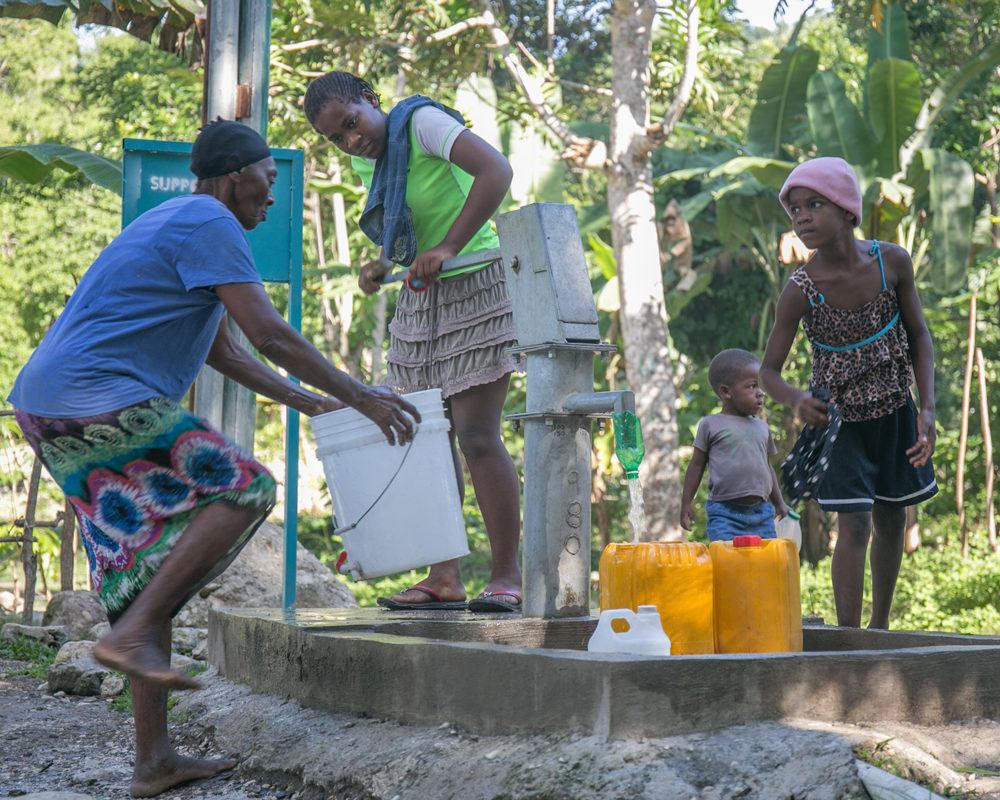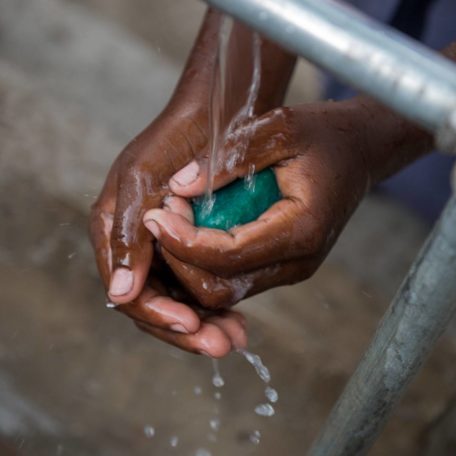
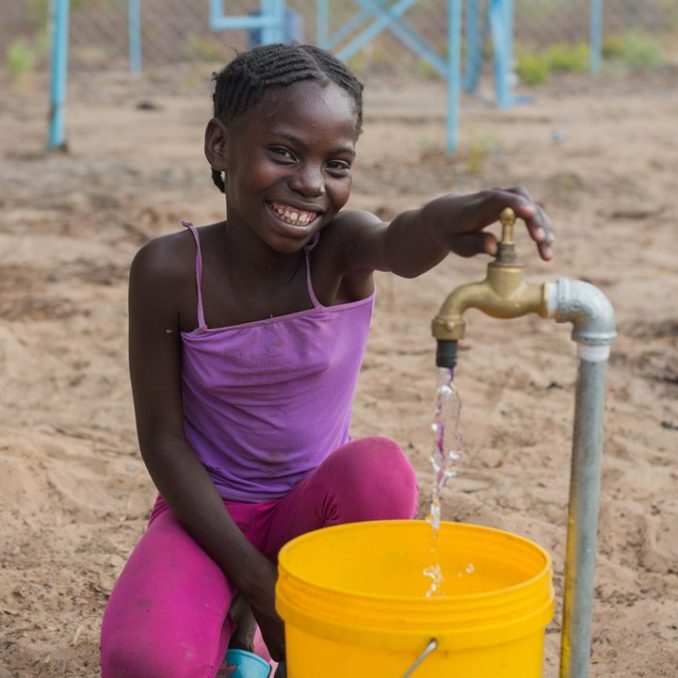
Clean Water for Healthier Lives Worldwide
Good health begins with clean water. Hundreds of thousands of women and children die each year from water-related illnesses. Increasing access to clean water, sanitation, and hygiene is essential to health, education, and income.
CMMB works with communities to improve access to clean water, sanitation, and hygiene by constructing handwashing stations, wells, water storage tanks, and rainwater collection systems to help families live happier, healthier lives.
Anastasia’s Story
Anastasia is 12-years-old and lives with her parents and 11 siblings in Kakuyu village in Kenya. Every day, she and her family must travel eight miles each way to reach the nearest water source. They can never collect and carry enough water.
Water Changes Lives
Increasing access to clean water, sanitation, and hygiene (WASH) is essential. Our community health workers play a large role in WASH education and supporting behavior change. They educate local communities by raising awareness around the importance and health impact of hand washing, dedicated toilets, and clean drinking water.
Our approach includes:
• WASH education
• Water source construction, maintenance, and repair
• Water treatment products
• Latrine construction, including at schools to support education for girls
• Development of safe water sources, indoor plumbing, and waste management at local health facilities
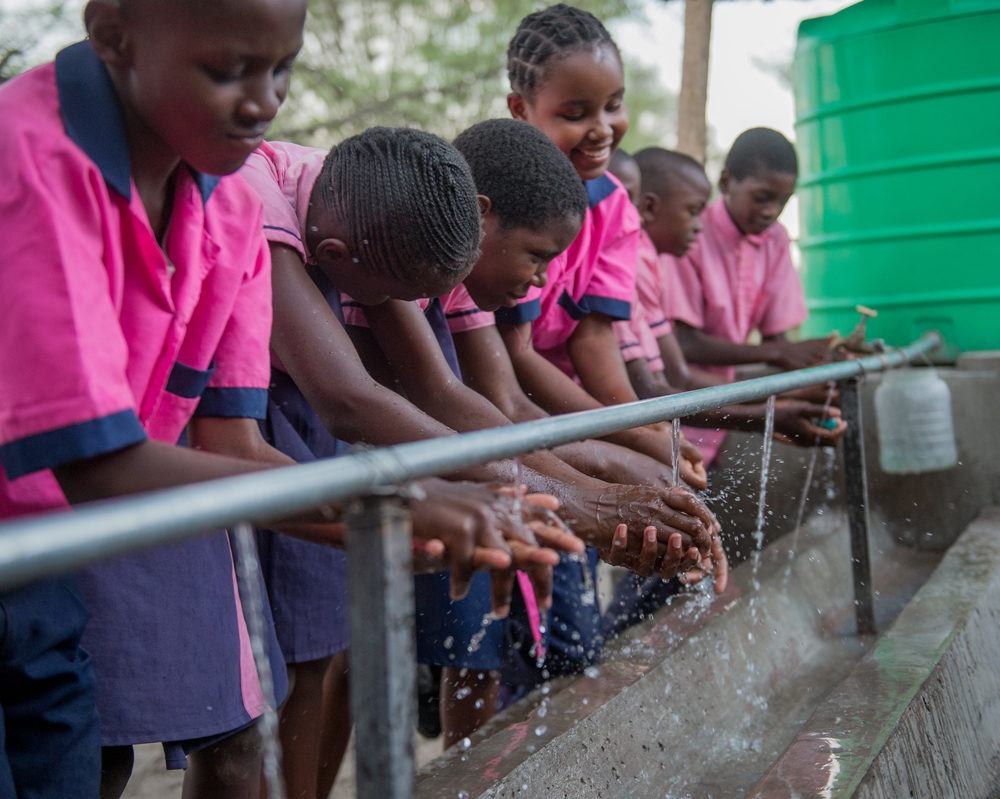
The Power of Clean Water
Unsafe water kills over 700 children every day.
Unsafe water can cause diarrhea and transmit diseases such as cholera, dysentery, typhoid, and polio. It results in countless deaths—almost all of which are preventable.
In 2020, CMMB increased access to safe water for over 260,000 people. With the support of partners like P&G, we have reached over 40,000 households worldwide.
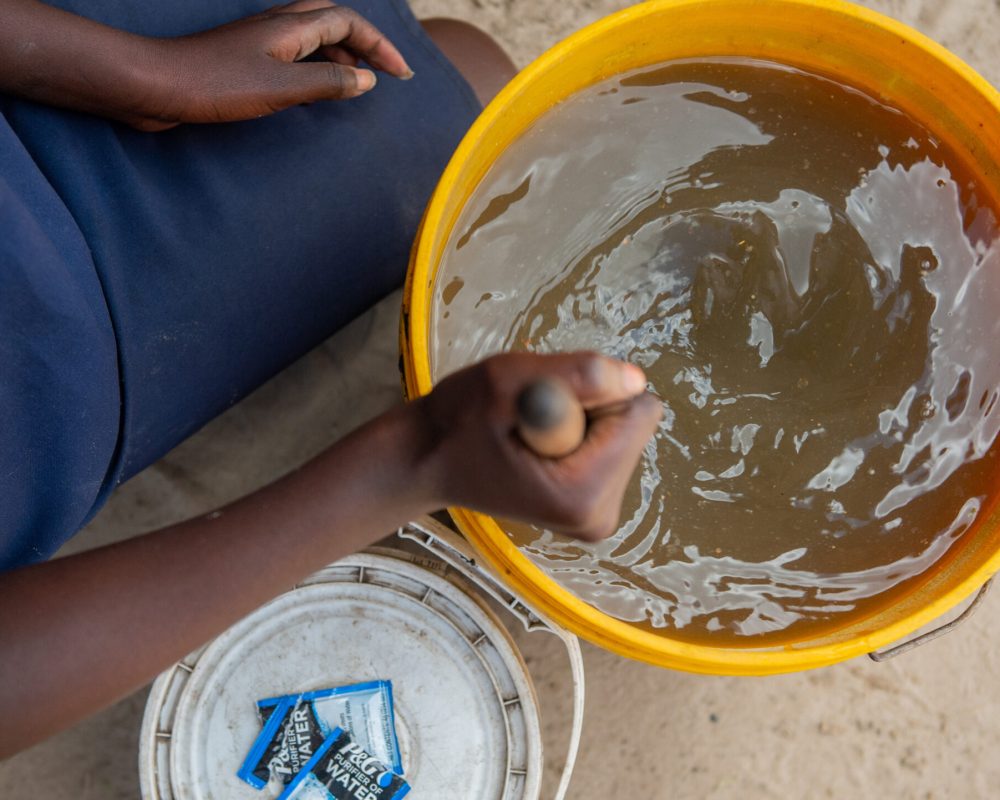
Millions of children go to school every day in unsafe learning environments, with no drinking water.
When communities have access to clean water, it reduces the amount of time that children spend walking to collect water each day. When schools have safe water and clean sanitation facilities, learning outcomes improve and attendance rates increase, especially for young girls.
If schools do not have proper cleaning and sanitation facilities, girls are often forced to miss classes when they are on their period. Many girls are forced out of school entirely once reaching puberty.
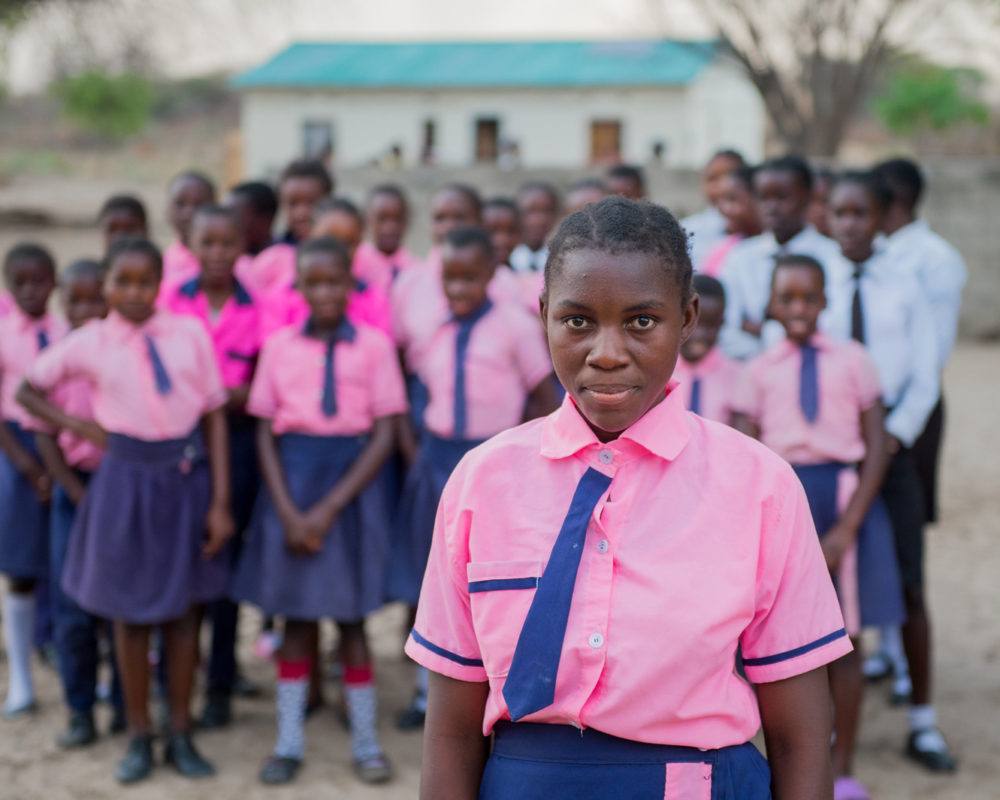
785 million people lack basic drinking water, including 144 million people who depend on contaminated surface water.
When clean water becomes more accessible, people spend less time and effort physically collecting water, so they can be productive in other ways. Improved access to clean water and sanitation is shown to improve economic growth and can greatly reduce poverty.
Access to clean water and sanitation means families spend less on healthcare, as people are less likely to become sick and incur medical costs from water-related illness—especially children. Healthy families are able to go to work and school and build a better future.
